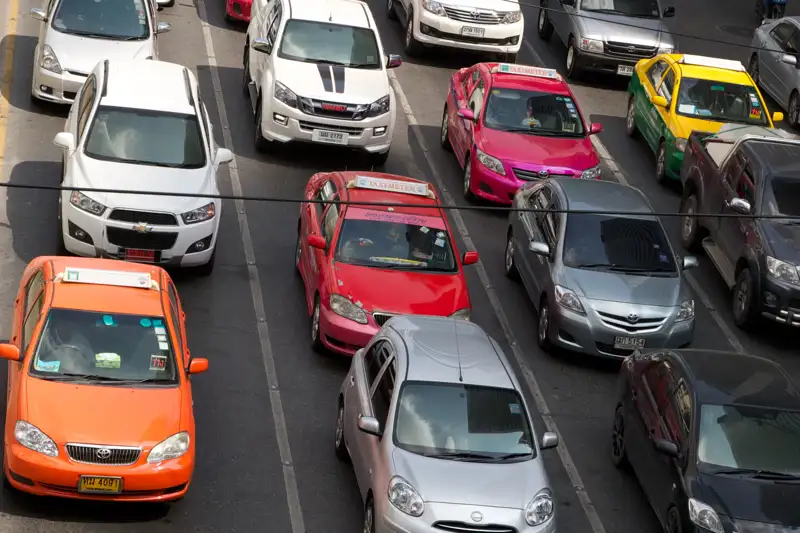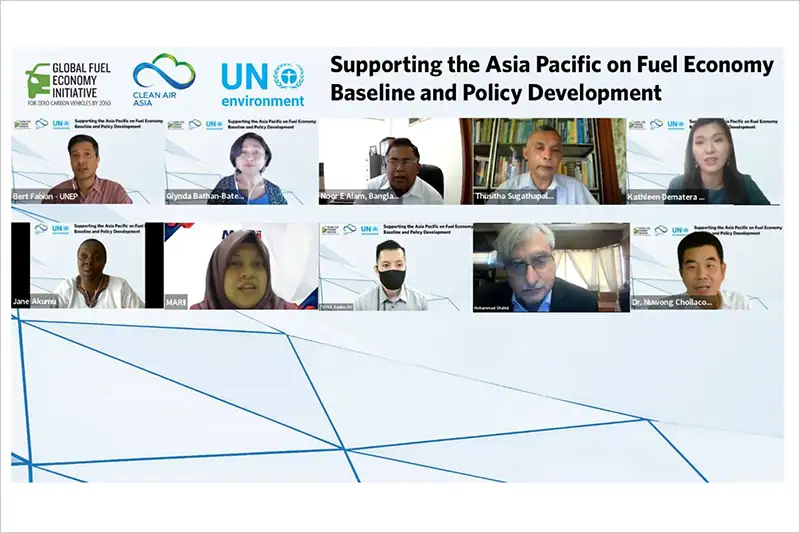GFEI webinar support efforts to reduce vehicle emissions across Asia Pacific
06 May 2022

GFEI partners UN Environment Programme (UNEP) and Clean Air Asia recently organised a webinar on how to understand vehicle emissions. The event brought together thinktanks and experts from across the Asia-Pacific region (and beyond) and highlighted the importance of developing a fuel economy baseline.
The event aimed to accelerate the development of ambitious measures to reduce vehicle emissions through a knowledge exchange on successful policies and initiatives to improve fuel economy. These policies can save money and also form an important stepping stone in transitioning to zero emission vehicles and electric mobility.
“Fuel economy is a topic so relevant today especially in Asia, which contributes over 50% of global greenhouse gas emissions,” said Glynda Bathan-Baterina, Deputy Executive Director of Clean Air Asia.

The first half of the session highlighted the instrumental role of light-duty vehicles (LDVs) - the number of which continues to grow, particularly in developing markets - in fuel economy baseline development.
It is imperative that we know what kind of vehicles are coming to our countries now so that we can put in place policies to make sure that future new vehicles - in 2-3 years’ time - will be more efficient,” said Bert Fabian, UNEP Programme Officer.
Sheila Watson, Director of the FIA Foundation, stressed the importance of partnerships between the countries to promote a more efficient and cleaner vehicle fleet.
“As GFEI we are supporting the maximum possible efficiency of the vehicles on our roads across the globe, be they heavy or light duty vehicles, 2- or 3-wheelers, or buses. This is an essential under-pinning in achieving the Paris goals set for 2050,” she said.
The subsequent discussion highlighted the difficulty of acquiring the necessary vehicle information for fuel economy analysis as a common challenge experienced by countries around the world. The sorts of issues which were highlighted included:
- The lack of information on vehicle model and engine displacement (Bangladesh)
- The role of excise taxes in the improvement of their fuel economy (Thailand)
- The value of feebates -- the policy that shifts consumer purchases to lower emission vehicles by placing a “fee” on more polluting vehicles and by granting efficient vehicles “rebates” -- in terms of acceptance and awareness (Kenya)
- The feebate scheme in Mauritius, which is based on the CO2 threshold, prompted the increase in energy-efficient vehicles and resulted in the government granting more rebates than collecting levies. This paved an opportunity for its government to adjust their feebate scheme and further monitor the impacts of its policies on the overall vehicle fleet.
- Improving vehicle fleet through vehicle retirement and fiscal incentives for electric vehicles. (Pakistan)
- The impact of policies on fuel economy rating and labeling (Philippines)
- The application of new technology elements, and development of a country to be the hub for Next Generation Vehicles. (Malaysia)
The webinar concluded that there is a need for the proactive participation of the government institutions in pushing through the development of fuel economy and its corresponding policies. Further, public support must also be sustained through increased awareness campaigns and stakeholder consultations. The event was supported by the Global Fuel Economy Initiative (GFEI), the FIA Foundation, the Global Environment Facility, and the European Commission.